
views
X
Trustworthy Source
United Nations
Official site for the United Nations, an intergovernmental organization devoted to maintaining peace and building relationships between all nations.
Go to source
If you witness law enforcement or other government actors violating these rights, there are a number of things you can do to stop the violations. Your ability to trigger a change in policy or prevent further human rights violations depends to a large extent on getting other governments and international organizations to take an interest in the problem.
Reporting Violations to the Government
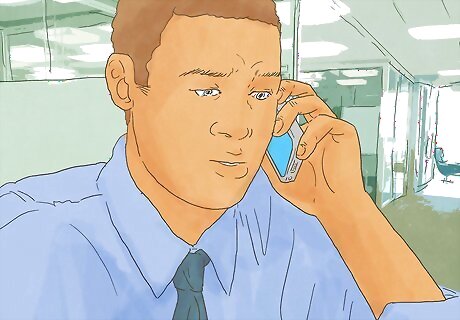
Contact the appropriate federal agency. Certain federal agencies such as the Department of Justice help enforce human rights law and prosecute human rights violations. For example, USAID provides human rights assistance around the world, as well as humanitarian aid and development assistance in foreign countries. This assistance may be tied to respect for certain basic human rights. The DOJ is interested in human rights violators who have entered the U.S., or U.S. citizens who have violated human rights abroad. If you know of such a person you can provide identifying information to the DOJ. You can remain anonymous if you want. Be prepared to let the agency know the suspect's name and a basic physical description, what they did that constituted a human rights violation, and how you came to know about it. You also may provide information about non-U.S. citizens living in the U.S. to Immigrations and Customs Enforcement at 1-866-347-2423.
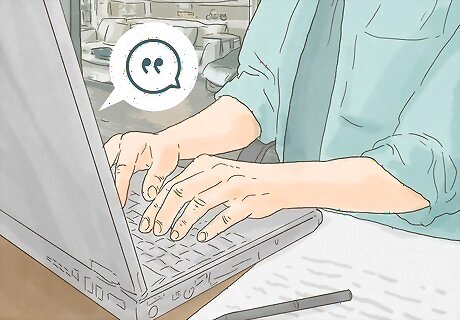
Draft a petition. Getting signatures on a petition can encourage the federal government to take notice of a particular human rights violation. Before you start your petition drive, research the requirements for a legal petition so you can make sure you're following the rules and that all signatures on your petition will count as legitimate and actually make a difference. While there are plenty of websites where you can build a petition for free, many of these sites do not check identification of anyone signing. If age and residency cannot be verified, the petition cannot be considered as more than suggestive to any governmental entity.

Call or write your senator or representative. Your federal government representative may be willing to advance your interest in Congress. If the violation is occurring in a different country, you should keep in mind that interventions to stop human rights violations are seldom unilateral. However, you may be able to spur the federal government to work with other countries or work collectively through an organization such as the UN to put an end to the practice. Writing an official can help explain the importance of the issue and persuade her to put her support behind any efforts to stop the human rights violation. If there currently aren't any government actions to fight this particular human rights violation, you may be able to get the issue on the table. Keep your letter straight and to the point, and stick to the facts. Explain what the issue is, why it is important, and who it affects.
Reporting Violations to International Organizations

Choose the organization best suited to respond. While some organizations such as the UN have broader missions, there also are smaller organizations that focus on specific human rights issues such as human trafficking. For example, the Carter Center's Human Rights Program has been focused on the role of religion in advancing women's human rights. If you've witnessed a human rights violation that you believe falls within that focus, you might consider contacting the Carter Center or one of the activists working in its human rights program. Organizations that monitor human rights include nongovernmental organizations such as Amnesty International and Human Rights Watch. These organizations monitor, analyze, and research human rights in various areas and compile reports for individual governments and intergovernmental bodies to use. While nongovernmental organizations cannot enforce laws or punish those who violate laws, they can put pressure on governments to go after those who violate human rights or enact sanctions against countries with records of human rights abuses. Intergovernmental and governmental organizations can enforce human rights laws and international treaties, but their abilities and enforcement mechanisms may be limited. Many of these bodies, such as the Human Rights Council, engage in many of the same activities that the nongovernmental organizations do. Human rights commissions such as the Commission for Human Rights of the Council of Europe are a third type of international human rights organization. These organizations typically are independent bodies affiliated with another international governing body that report to that body.

Read international human rights law. Particularly if you intend to contact an international organization such as the UN, you must be able to point to the particular part of international law that is being violated. Basic human rights that most all cultures agree upon are articulated in documents such as the Universal Declaration of Human Rights, the International Covenant on Economic, Social and Cultural Rights, and the International Covenant on Civil and Political Rights. The UN website for the Office of the High Commissioner of Human Rights also has information on specific human rights treaties and reports on the performance of signatory countries under those treaties.
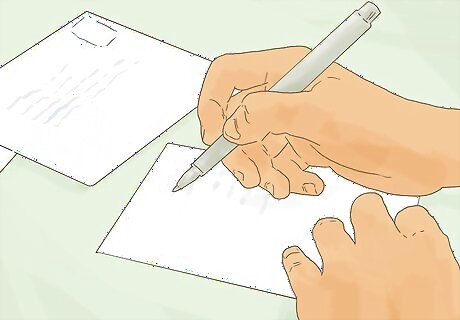
Draft your report. When you write your report to the organization you've chosen, be sure to include all relevant information and as many details as possible. At a minimum, your report should state all relevant facts in chronological order. Include dates, times, and places of all incidents, along with as many names as you can, both of victims and perpetrators. Include all the contact information you know along with your own. Basically, include anything and everything in your report that might help the organization investigate the report. Even if you think a detail is irrelevant, it could be what leads the investigator to find victims or perpetrators of human rights abuses and bring them to justice. When you observe a possible human rights violation, write down as many details as possible while it's happening, including taking pictures, to establish a record you can later pass on to the appropriate organization.

Submit your report to the appropriate organization. Most international organizations have an address or toll-free telephone number you can use to submit tips or more extensive reports about human rights violations. Organizations such as Human Rights Watch and Amnesty International all have telephone numbers and email addresses where you can send reports of human rights violations.
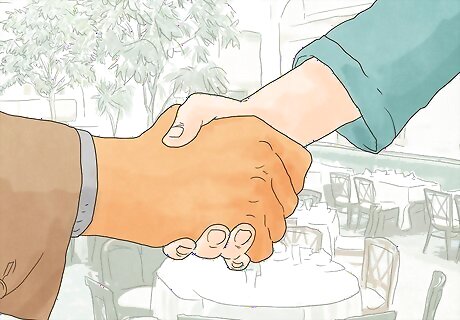
Cooperate with the organization in any follow-up activities. If a representative of the organization contacts you, be prepared to provide additional details, documentation, or the names and contact information of possible witnesses.
Engaging in Activism

Organize a protest. Talk to like-minded individuals about staging a protest at an embassy or government building to increase awareness of the human rights violation. You can use a public demonstration to increase public awareness of the issue and build support to stop the human rights violation. If you have enough people joining you, it also sends a message that you have a lot of support to stop the violations. Reach out to other groups who conduct public demonstrations on a regular basis and decide who will be in charge of which aspects of the protest. Once you've identified the location where you plan to stage your protest, find out what permits you will need to get, how long those permits will be effective, and what those permits will permit you to do. You have the right to protest in the United States, but governments do have the ability to restrict the time, place, and manner of your protests. For example, you may be able to protest outside the office building of a company you believe is violating the human rights of its overseas workers, but you may not be permitted to blast loud music or use bullhorns or megaphones while people in the offices are trying to work.

Go to the media. Seek attention from news networks and newspapers to help inform the public about the human rights violation. If you are in another country when you witness a human rights violation, keep in mind that your telephone or email communications may be monitored. If you do talk to a journalist, be careful not to reveal names or contact information of any local sources over these channels. You don't want to get your witnesses in trouble. You also could consider writing a letter to the editor to major or high profile newspapers or news magazines. Include information on how readers can help join the fight to stop the human rights violations you describe. If your letter is published, you can help raise awareness about the issue among the general public.

Start a social media campaign. Creating viral videos or status updates on social media networks can create a groundswell of support to stop the human rights violations. Although there has been much criticism of so-called "Hashtag Activism," social media campaigns can raise awareness for your issue in a way that forces mass media and the government to sit up and take notice. Especially if you are someone with few connections and little power to stop human rights violations on your own, starting a social media campaign can be a relatively simple and inexpensive way to get government or international officials to take action to stop the abuses you've observed.
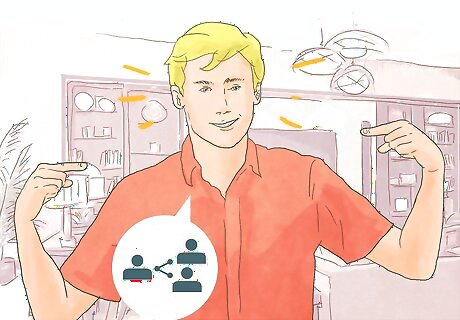
Volunteer for a human rights organization. If there is already a human rights organization working on stopping the violation, consider volunteering your time to assist its efforts. For example, Amnesty International has resources online that will allow you to sign petitions, participate in online activism, or volunteer to learn skills and work to protect human rights around the world.

















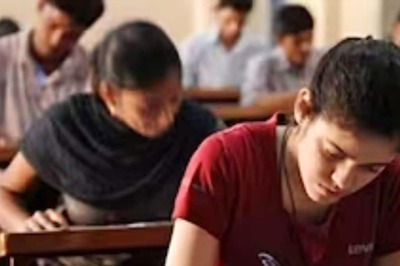

Comments
0 comment